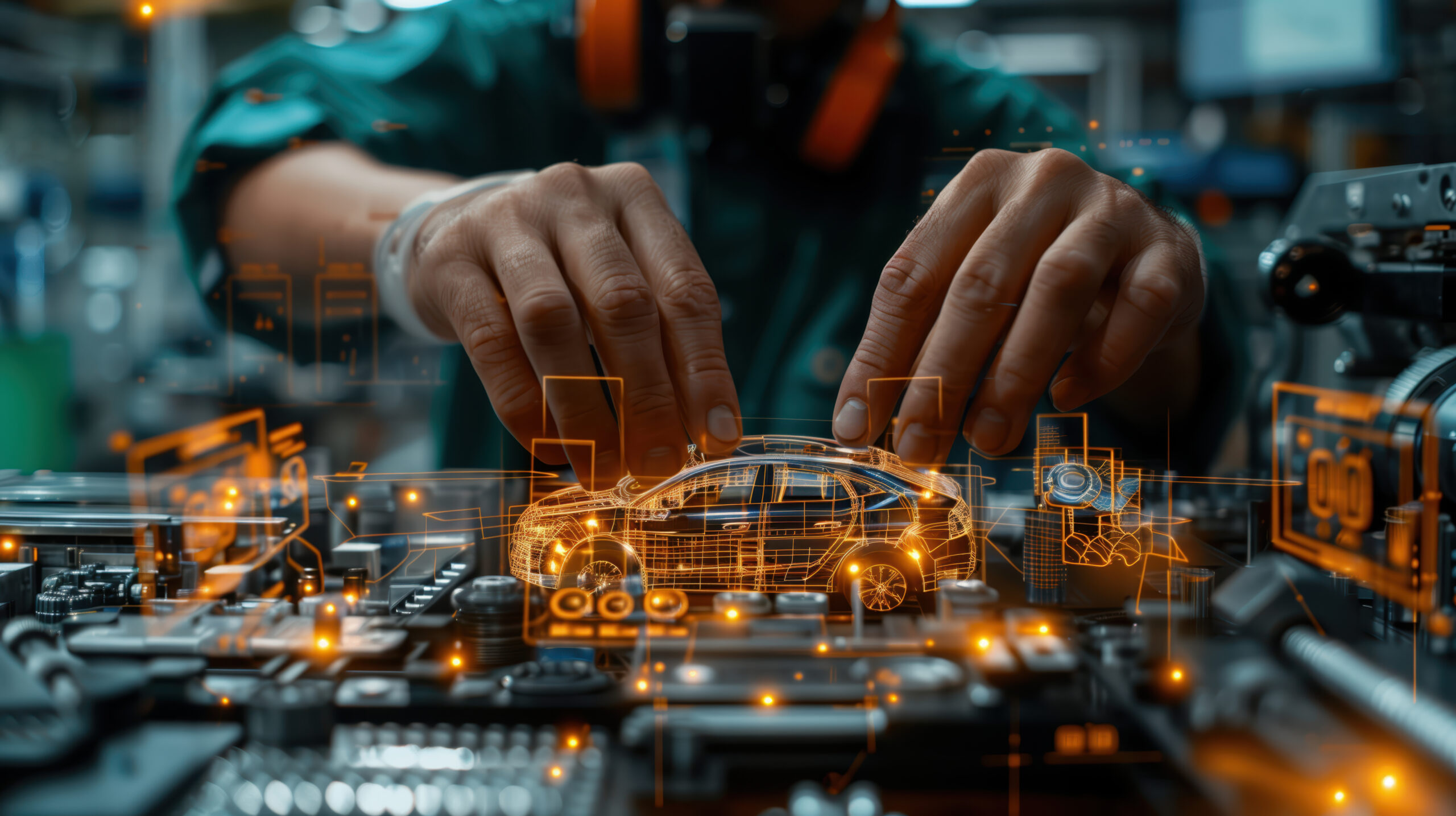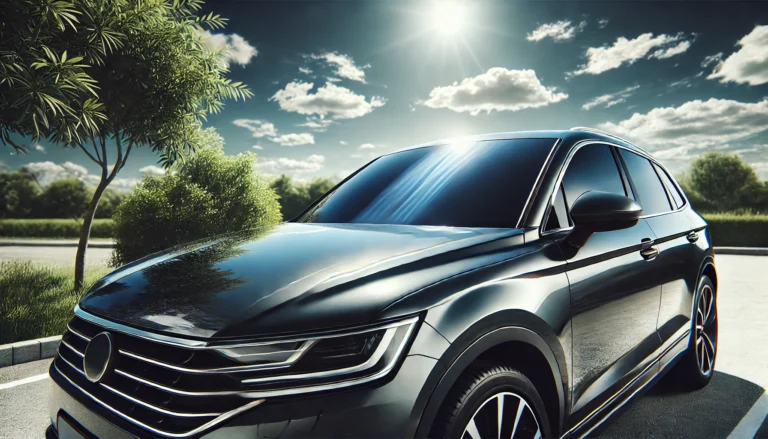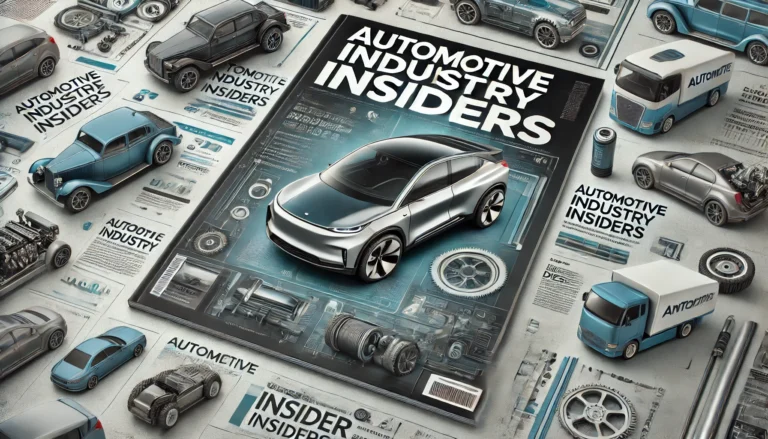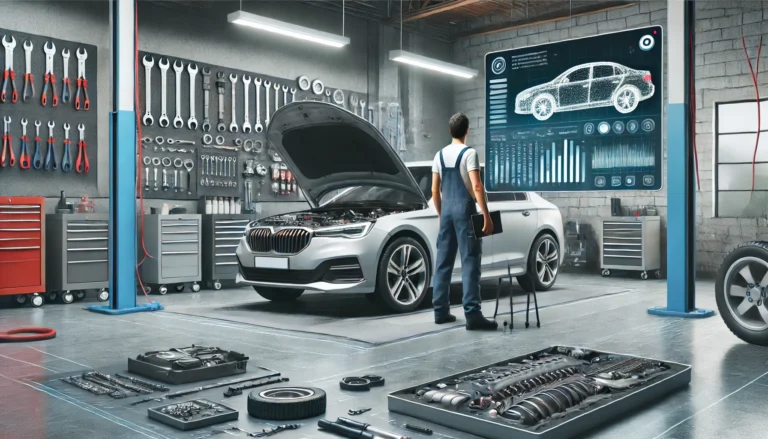The automotive industry is undergoing a massive transformation with the groundbreaking automotive tech. From electric vehicles (EVs) and autonomous driving to connected vehicles and software-defined vehicles, technology is shaping the future of transportation.
Companies like Lotus Technology Inc. are leading the charge, bringing innovative technology to modern vehicles. With the EV & AutoTech Innovation Forum 2024 showcasing the latest trends, it’s clear that the auto industry is shifting towards a more digital and intelligent future.
In this article, we explore the advanced technologies that are driving the next wave of mobility, ensuring a personalized driving experience and optimizing vehicle performance.
Electric Vehicles (EVs) and Battery Technology
The push for sustainability has made electric vehicles the future of transportation. Automakers worldwide are committed to innovation in modern vehicles, focusing on enhancing efficiency and reducing environmental impact.
The Evolution of EVs in the Automotive Sector
The automotive sector has seen significant advancements in EV & AutoTech Innovation Forum discussions, emphasizing forward-looking statements about a cleaner, more efficient future. Brands are committed to overcoming the slow pace of infrastructure development by expanding charging networks.
How EVs Improve Vehicle Performance
- Artificial intelligence optimizes energy consumption.
- Software-defined vehicles allow over-the-air (OTA) updates for better functionality.
- BenQ Materials and other suppliers innovate in raw materials to enhance battery longevity.
Challenges and the Future of EVs
While EVs have a high lifetime limit, issues like annual limits on battery warranties and reliance on critical raw materials impact long-term viability. However, with investments from Israeli startups, solutions are emerging for next-gen battery tech.
Autonomous Vehicles (Self-Driving Cars)
As the industry moves toward autonomous driving, AI-powered systems are improving vehicle performance. Some automakers are even experimenting with tuning technology to enhance performance in semi-autonomous vehicles. The AutoTech Innovation Forum has highlighted that autonomous driving will play a crucial role in shaping future mobility.
Key Differentiators in Autonomous Driving Technology
- AI-powered decision-making systems enhance driving precision.
- Connected vehicles communicate with smart infrastructure.
- Advanced technologies improve obstacle detection and response time.
Challenges in the Auto Industry
While self-driving cars promise safety, issues such as slow pace adoption, regulatory concerns, and ethical dilemmas persist. Nonetheless, companies like Lotus Tech are pioneering breakthroughs in this domain.
Artificial Intelligence (AI) in the Automotive Industry
The automotive industry is leveraging artificial intelligence (AI) to enhance driving experiences and vehicle automation. AI plays a crucial role in optimizing vehicle performance, enabling smarter, safer, and more efficient mobility solutions.
How AI Enhances Modern Vehicles
- AI-powered safety features like adaptive cruise control and lane-keeping assist are improving driving experiences.
- Predictive maintenance uses AI algorithms to detect issues before they occur.
- AI is fundamental in autonomous vehicles, allowing real-time decision-making.
The Role of AI in Personalized Driving Experience
AI-driven systems help create a personalized driving experience by learning driver preferences, adjusting seat positions, and customizing infotainment settings. This technology is reshaping the automotive experience for millions of users.
AI and the Future of Automotive Innovation
The EV & AutoTech Innovation Forum 2024 has emphasized AI’s role as a key differentiator in the auto industry. With AI-powered advancements, vehicles will become more intuitive, reducing human error and making roads safer.
Connected Vehicles and the Internet of Things (IoT)
The concept of connected vehicles is revolutionizing how cars interact with their surroundings. These vehicles rely on advanced technologies to communicate with infrastructure, other cars, and cloud-based services.
How Connected Vehicles Improve Driving Experiences
- Vehicle-to-Vehicle (V2V) communication helps prevent collisions.
- Vehicle-to-Infrastructure (V2I) systems optimize traffic flow.
- AI-driven connectivity enables real-time weather and road condition updates.
The Importance of Cybersecurity in Connected Cars
While connected vehicles offer convenience, they also pose security risks. Protecting driver data and preventing cyberattacks are top priorities for manufacturers. The AutoTech Innovation Forum has addressed cybersecurity as a major concern, advocating for blockchain and encryption-based security systems.
Software-Defined Vehicles and Digital Transformation
Software-defined vehicles (SDVs) represent a major shift in the automotive industry, where software updates play a bigger role than mechanical components. Instead of traditional hardware-based improvements, SDVs receive continuous upgrades through OTA software patches.
Benefits of Software-Defined Vehicles
- Continuous performance improvements through AI-driven updates.
- Customization and flexibility for drivers via cloud-based services.
- Reduced reliance on raw materials, making manufacturing more sustainable.
Challenges in Implementing Software-Defined Technology
While SDVs are transforming modern vehicles, challenges include:
- Dependence on high-speed internet and cloud infrastructure.
- Cybersecurity risks in connected vehicle systems.
- The need for standardization across the auto industry.
Leading brands like Lotus Tech are pioneering SDV advancements, ensuring that cutting-edge innovations drive the future of mobility.
Sustainable Automotive Technologies
Sustainability is a key focus in the automotive sector, with companies investing in innovative technology to create greener alternatives. The EV & AutoTech Innovation Forum has placed significant emphasis on sustainability as a crucial role in future mobility.
Key Developments in Sustainable Automotive Technology
- Advanced battery technologies for longer-lasting EVs.
- Biofuels and synthetic fuels as eco-friendly alternatives.
- Solar-powered vehicles that reduce reliance on external charging.
The Role of Lotus Technology Inc. in Automotive Sustainability
Lotus Technology Inc. has been instrumental in integrating advanced technologies for sustainable transport, focusing on reducing emissions and improving efficiency.
The Future of Green Mobility
With regulations becoming stricter, the auto industry is expected to prioritize sustainability. Future developments may include biodegradable car materials, energy-efficient supply chains, and carbon-neutral production processes.
Smart Roads and Infrastructure Innovations
The future of mobility isn’t just about modern vehicles; it’s also about cutting-edge innovations in road infrastructure. Smart roads integrate advanced technologies to enhance vehicle performance and safety.
How Smart Roads Improve the Automotive Experience
- Embedded sensors monitor traffic patterns and detect hazards.
- AI-driven traffic lights optimize flow to reduce congestion.
- Self-healing roads use special materials that repair cracks automatically.
Energy-Generating Highways: A Key Differentiator in the Auto Industry
Innovative roads are being developed to generate solar power, providing electricity for connected vehicles and public infrastructure. These solutions align with the sustainability goals discussed at the EV & AutoTech Innovation Forum 2024.
Challenges in Smart Road Implementation
- High raw materials costs for smart infrastructure projects.
- Cybersecurity risks in software-defined vehicles that rely on smart road networks.
- The slow pace of government regulations and approvals.
Despite these challenges, Lotus Tech and other industry leaders are pushing for smarter, safer roads to enhance the automotive experience.
Biometric Vehicle Access and Personalization
Security is becoming a top priority in the automotive industry, and biometric authentication is emerging as a key differentiator for vehicle access and customization.
How Biometric Technology Enhances Driving Experiences
- Facial recognition and fingerprint sensors replace traditional keys.
- Personalized driving experience with auto-adjusted seat positions, climate control, and entertainment settings.
- Voice recognition for hands-free commands, improving safety and convenience.
Cybersecurity Challenges in Biometric Systems
- Risk of hacking and data breaches in connected vehicles.
- Ethical concerns over data privacy and user tracking.
- Need for robust encryption to prevent unauthorized access.
Despite these challenges, biometric integration is set to revolutionize modern vehicles, making them more secure and user-friendly.
Autonomous Delivery Vehicles and Drones
The rise of autonomous vehicles isn’t limited to passenger cars—autonomous driving is transforming the logistics and delivery sectors as well.
How Autonomous Delivery Vehicles Are Changing Logistics
- AI-powered navigation enables precise deliveries with minimal human intervention.
- Connected vehicles communicate with traffic systems for faster routes.
- Drones and robotic couriers are automating last-mile deliveries.
Challenges in Deploying Autonomous Delivery Vehicles
- Regulatory concerns about safety and airspace restrictions.
- High costs of AI and sensor technology.
- Slow pace of consumer acceptance and trust in autonomous systems.
Companies like Lotus Technology Inc. are at the forefront of testing and refining these advanced technologies, ensuring a seamless transition toward autonomous logistics.
The Future of Automotive Innovation and Mobility
As we move toward a software-defined vehicle era, the automotive sector is seeing rapid advancements in innovative technology. The EV & AutoTech Innovation Forum highlights several forward-looking statements about the industry’s trajectory.
Key Predictions for the Auto Industry
- Widespread adoption of autonomous driving across global markets.
- Enhanced AI-driven vehicle performance with real-time learning.
- Expansion of connected vehicles for a more seamless driving experience.
Lotus Tech’s Commitment to Innovation in the Automotive Industry
Lotus Tech remains committed to developing cutting-edge innovations that prioritize safety, sustainability, and efficiency. Their focus on AI, EVs, and smart infrastructure solidifies their place as a key differentiator in the auto industry.
Final Thoughts on Groundbreaking Automotive Tech
The automotive experience is evolving rapidly, with AI, biometrics, and smart infrastructure shaping the next generation of transportation. As Israeli startups and global innovators push boundaries, the future of mobility promises to be smarter, cleaner, and more efficient.
FAQs
What are the key differentiators in the modern automotive industry?
The auto industry is defined by software-defined vehicles, autonomous driving, and cutting-edge innovations in AI and connectivity.
How is artificial intelligence improving vehicle performance?
AI enhances vehicle performance by optimizing energy usage, enabling predictive maintenance, and improving driver safety with real-time data analysis.
What role does Lotus Technology Inc. play in the automotive sector?
Lotus Technology Inc. is a pioneer in advanced technologies, particularly in EV innovation, connected vehicles, and AI-driven systems.
How will autonomous vehicles impact driving experiences?
Self-driving technology is set to redefine driving experiences, making them safer, more convenient, and highly personalized through AI integration.
What challenges does the auto industry face in adopting innovative technology?
The slow pace of regulation, cybersecurity concerns, and the high cost of raw materials are some of the major hurdles in the widespread adoption of innovative technology.








